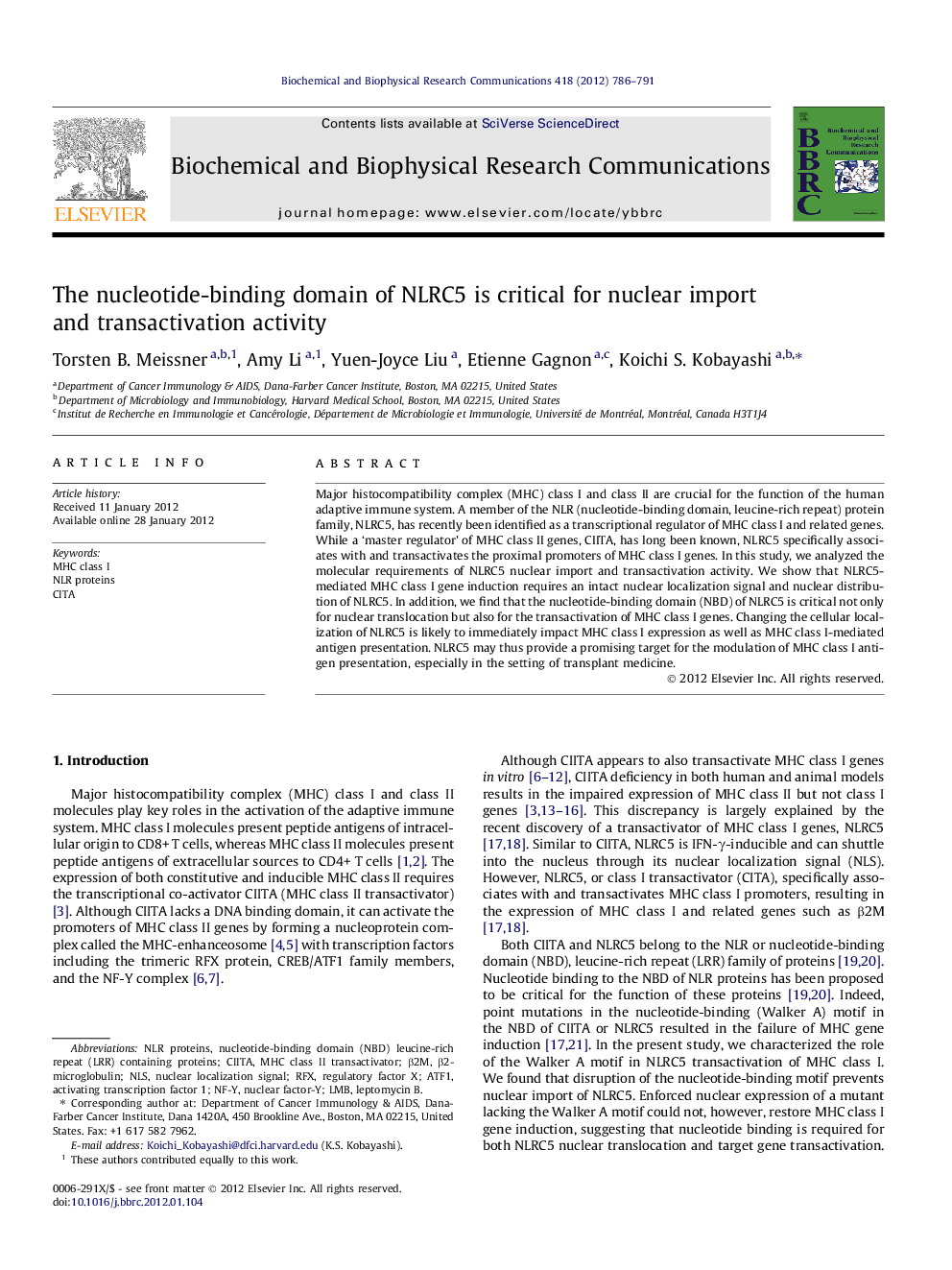| کد مقاله | کد نشریه | سال انتشار | مقاله انگلیسی | نسخه تمام متن |
|---|---|---|---|---|
| 1929912 | 1050477 | 2012 | 6 صفحه PDF | دانلود رایگان |

Major histocompatibility complex (MHC) class I and class II are crucial for the function of the human adaptive immune system. A member of the NLR (nucleotide-binding domain, leucine-rich repeat) protein family, NLRC5, has recently been identified as a transcriptional regulator of MHC class I and related genes. While a ‘master regulator’ of MHC class II genes, CIITA, has long been known, NLRC5 specifically associates with and transactivates the proximal promoters of MHC class I genes. In this study, we analyzed the molecular requirements of NLRC5 nuclear import and transactivation activity. We show that NLRC5-mediated MHC class I gene induction requires an intact nuclear localization signal and nuclear distribution of NLRC5. In addition, we find that the nucleotide-binding domain (NBD) of NLRC5 is critical not only for nuclear translocation but also for the transactivation of MHC class I genes. Changing the cellular localization of NLRC5 is likely to immediately impact MHC class I expression as well as MHC class I-mediated antigen presentation. NLRC5 may thus provide a promising target for the modulation of MHC class I antigen presentation, especially in the setting of transplant medicine.
► NLRC5 requires an intact NLS for its function as MHC class I transactivator.
► Nuclear presence of NLRC5 is required for MHC class I induction.
► Nucleotide-binding controls nuclear import and transactivation activity of NLRC5.
Journal: Biochemical and Biophysical Research Communications - Volume 418, Issue 4, 24 February 2012, Pages 786–791